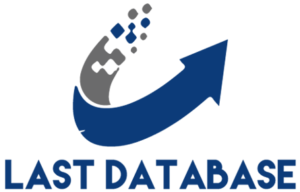MOZ reports that Google changes its search algorithm around 500-600 times a year. While most algorithm changes are minor, having old SEO techniques can have a major impact on your rankings. Routine maintenance of your SEO strategy will help you stay on top of any Google algorithm changes and ahead of your competitors. Content optimization for keywords is an important part of ongoing SEO on a website. It is recommended that you perform content optimization at least annually for each site.
As your online presence evolves, the way users search also changes
Common words and phrases used to describe products online may differ from traditional terms, and both can change over time. By optimizing your content annually or more frequently, you not only make your content more aligned with your SEO goals, but you also have a better chance of attracting customers who are likely to convert rather than someone who is just browsing. When changing keywords on your website, it is a best practice for SEO to also change the meta titles and descriptions of that page to match the new content.
Search engines will detect these changes and will look for consistency in your content
To outperform your competitors, it is recommended that you focus on specific keywords that have high search volume and low competition. For a marketer looking to improve search rankings with content, impressing your audience with big words is less important than using keywords and phrases that have a generous amount of search traffic.
Keyword Research Tools
There are many keyword research tools that marketers and copywriters use to understand what people are searching for in relation to an industry, product or service. Popular tools like Google Keyword Planner and MOZ Keyword Explorer provide average monthly search volumes for specific terms, as well as keyword suggestions based on what was initially provided.
There are many benefits to using these tools
Especially since most provide average monthly searches, which can be filtered by geography if desired. A keyword with a high search volume is not how to build telemarketing data always the most valuable, because the more people searching for it, the more competition there will be for rankings on the search engine results pages (SERPs). Instead, choosing a mid- to low-level keyword or a phrase that is more specific will set you apart from the competition. For example, if you are a marketer looking to optimize for a residential real estate business, you will want to include keywords and phrases that set this service apart from others, such as geographic indicators or property differences.
While “homes for sale in CT” is a highly searched phrase
The competition is also higher. Certain key phrases with lower search volumes, such as “townhomes for sale in CT,” “homes for sale in Stratford CT,” and “homes for sale in CT,” will attract the attention of valuable searchers who are more likely to search. Being specific on product, service, and location will attract customers looking for exactly what you offer and in your geographic area, rather than a broad range of browsers from all over the world.
Things to Consider During Keyword Research
As a business owner looking to make a antontan-taratasy amin’ny kaody mark in the online marketplace, the right Keyword Research process will be your ticket to success in this arena. Below are the key steps and considerations that will get you on the right track. These include:
First, create your keyword list
Think about how, what, where, why, and other potential queries your targeted visitors might be using.
Simplify your list using a good Keyword Research Tool
These tools can help you sort through your initial keyword list to determine which particular phrase has a good combination of demand and relevance to search results.
Refine your shortlist using Keyword Suggestions
If you’ve shortlisted a curated list of keyword america email list phrases, you can further refine your list using keyword suggestion tools that your keyword research tool may have included. The tool can help you improve your initial list by giving you better insight into how your targeted viewers edit, add, or remove words from your keyword phrases during actual searches. However, you should be careful in your curation process to make sure that your final selections are not just about your website’s content, but that they truly and accurately describe what your content is about.
Be Careful When Using Broad Keywords
Many online users use broad keywords like “buffet restaurants” when searching, but targeting your campaign using these broad keywords will leave you with a lot of competition. There’s also a good chance you’ll attract visitors who aren’t as targeted as you think they are and therefore won’t bring you any business. Broad keywords are useful for businesses that only target customers worldwide. However, if your business is located in a very specific city or state, adding specific cities or locations along with your keyword, such as “buffet restaurants Los Angeles” or “buffet restaurants in Los Angeles,” may bring you better, more targeted results. Using more specific phrases may attract a lower search volume. However, these types of searchers are.







